题目内容
You may have heard of the book Moby Dick(《白鲸记》), written by the American author Herman Melville. You may also know that Moby Dick is considered one of the greatest novels ever written. However, it might surprise you to find out Herman Melville was not always a highly regarded author.
Melville’s first two novels, Typee and Omoo, were widely read and financially successfully. They were both exciting tales of adventures at sea and experiences with people in foreign lands. Melville became quite famous. However, upon the publication of his third book, Mardi, Melville’s popularity began to weaken. He was no longer interested in telling tales of pure adventure, and his writing took on a style that alienated(使疏远) the general reading public of his time.
Melville published Moby Dick in October of 1851. it was an original novel, combining aspects of sociology and philosophy, which confused readers by its complex symbolism. The book sold poorly.
Melville’s next book, Pierre, was almost completely disregarded by the public. Debt frustration and ill health finally forced Melville to take a low-paying job as a customs inspector. Eventually, Melville abandoned prose(散文) and began to write poetry.
The Civil War is the main subject of Melville’s poetry. He and his brother made a trip to the front line, and he published a book of poems, Battle-Pieces and Aspects of War, based on this experience.
Melville died in 1891 at the age of 72. at this point, his work had been completely forgotten by the public. His talent was to go unrecognized for the next thirty years. Then, in 1920s, his reputation began to improve as critics and readers rediscovered his work. Today Moby Dick is one of the best-known novels ever penned by an American author.
1.What were Melville’s first two novels mainly about?
A. His travel experience.
B. His successful communication skills.
C. Adventurous experiences in the front line.
D. Adventurous voyages and foreign experiences.
2.We can learn from the text that Moby Dick________.
A. sold a little better than Pierre.
B. was Melville’s favorite novel.
C. was copied from other books.
D. made Melville popular again.
3.The text may be taken from___________.
A. a writing guide
B. a literary journal.
C. a science magazine.
D. a critical book on literature.
4. What is the text mainly about?
A. The main works of Melville.
B. The skills in Melville’s writing.
C. The ups and downs of Melville.
D. The reason for Melville’s failure.
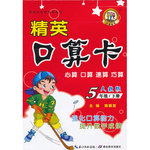 精英口算卡系列答案
精英口算卡系列答案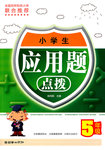 应用题点拨系列答案
应用题点拨系列答案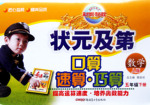 状元及第系列答案
状元及第系列答案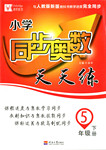 同步奥数系列答案
同步奥数系列答案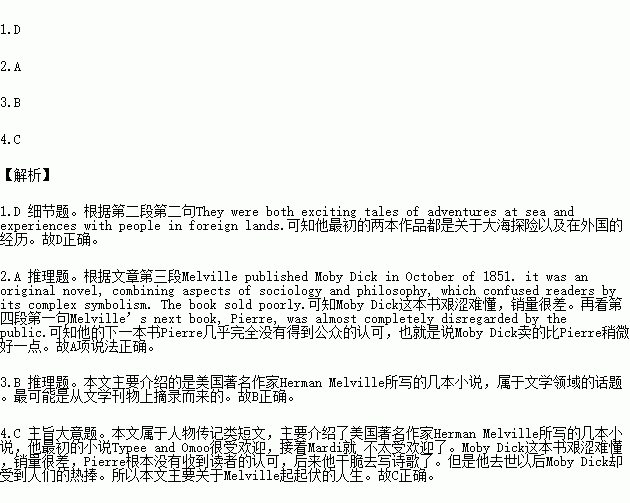

 C. lost D. soft
C. lost D. soft